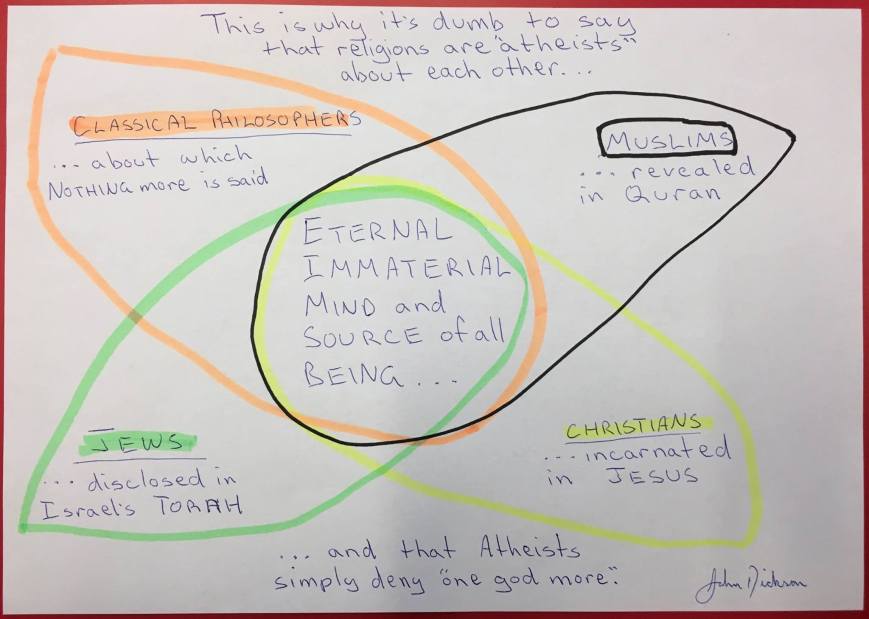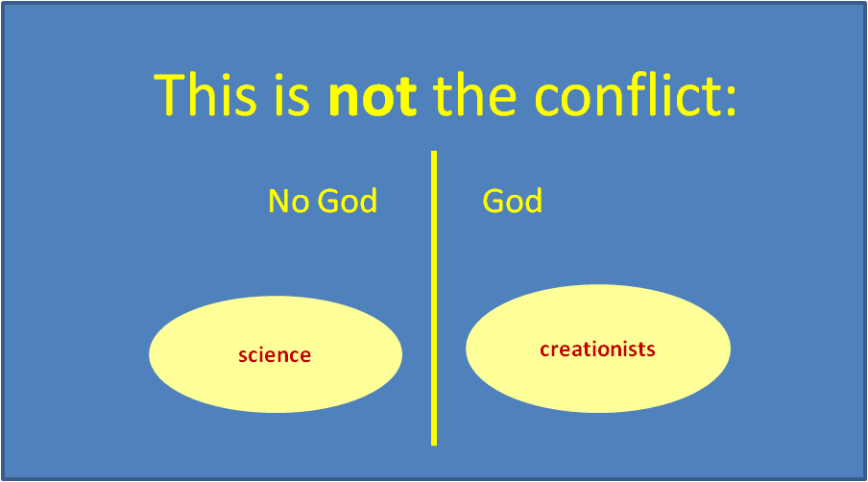I recently posted Creed, a poem by Steve Turner which outlines the relativist worldview. Although satirical, the poem does present many commonly-held beliefs amongst atheists. But it also does something which goes beyond the typical atheist approach: it actually sets out those beliefs clearly.
Yes, I’m aware that atheism isn’t a uniform worldview. But neither is Christianity. The central core of Christianity is uniform – that’s how we recognise it. But there are plenty of differences in opinion and a great deal of (often heated) discussion about everything beyond what is covered in the ecumenical creeds. There are many denominations in Christianity, but within each denomination there is a clear articulation of their beliefs. In short, you know exactly what you’re dealing with if you want to debate what Catholics or Baptists believe.
.
Speaking of clear articulations, let’s have a couple of definitions so that we all know what we’re talking about:
Encyclopaedia Britannica (2010):
Instead of saying that an atheist is someone who believes that it is false or probably false that there is a God, a more adequate characterization of atheism consists in the more complex claim that to be an atheist is to be someone who rejects belief in God.
Encyclopedia of Philosophy (MacMillan, 2005):
On our definition, an ‘atheist’ is a person who rejects belief in God.
.
Within atheism there are also many different views on issues of secondary importance. The primary issue is denial of God (and usually the supernatural), but beyond that it’s an open field. And that’s great: discussions about why we hold different beliefs can be an excellent way of learning about alternative points of view, and also help us to understand our own beliefs better.
But we have to actually hold a coherent set of beliefs before we can have a useful discussion.
.

.
I recently had a lengthy exchange with an atheist about the origins of morality. In over 2500 words of discussion, my correspondent never offered a concrete statement of personal beliefs. All sorts of theories were suggested, mention was made of “fascinating new research about morality” in various quarters, books titles and authors were offered as solemn incantations.
But as to the beliefs held personally by the individual? Not a peep. My own personal beliefs were articulated and examined at length, but repeated requests for a clear statement of my correspondent’s beliefs were met only with deflection and evasion.
I mention this particular exchange as but one example of a much larger trend. I observe in conversations with atheists an almost pathological aversion to the personal pronoun.
“Look, all these people have been writing big books on the subject!”
Yes, and…? What do you personally believe?
“Research supports this particular belief!”
Great. Do you personally believe that?
“Recent advances in [genetics]/[cosmology]/[evolutionary biology] indicate that…”
Do you personally use those advances as the basis of your worldview, or are your beliefs based on something else? And if so, what?
.
Socrates famously declared that “An unexamined life is not worth living”. But an unexaminable life is no life at all. If personal beliefs cannot be articulated, they cannot be understood the individual, let alone by others.
The Nicene Creed is a towering pillar of the Christian faith. It is a clear and succinct articulation of the core beliefs of Christianity, a concise expression of primary doctrine. To affirm the creed is to draw a clear line in the sand and say, “these are my beliefs.” That is the starting point for a useful discussion.
The Creed does not start off with: “Christians in general maintain that…”, or “It has long been the opinion of great theologians…”, or “The official Church position is that…”
It starts much more simply:
“I believe …”
.
—————————————
Related posts:
Lumpy atheism
Having the wrong conversation
The relativist creed
.




















